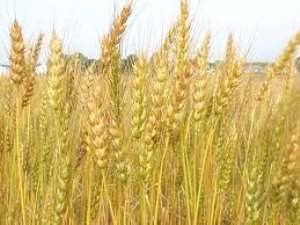
It grows millet, rice, guinea corn and corn as grain and cassava, yam, sweet potato and Irish potato as root staples, all of which can be converted into flour.
Fifty six years ago, wheat was part of the strategy that made many Ghanaians go out on the streets to hail the coup makers of 1966. As explained to us almost 30 years ago in London by the late Viscount Anthony Wedgewood Benn known as Tony Benn after he relinquished his peerage in the U.K. Hw was a Minister in the Wilson and Callaghan governments of the U.K and knew what he was talking about. The strategy had been to extricate Nkrumah from the people and the country best placed to do that was Britain.
The price of cocoa tumbled on the world market making it almost impossible for the government to achieve its touted and well costed seven year development. In addition, milk, canned sardines, tomato paste were no more available as readily as Ghanaians would want it. The price of bread also went up because there was shortage of wheat flour. Making life a bit unbearable for the average Ghanaian and therefore paving way for the 24th of February 1966 coup d'etat.
Why should a non wheat producing country create an impression that bread can only be made from wheat flour? Most European countries produce bread, biscuits and all other pastries using a variety of flour from many sources. Why has Ghana, sixty five years after independence and fifty six years of the overthrow of the first democratically elected government taken the decision not to change or adapt?
It is most likely the same situation in most African countries.
Russia is the world's largest exporter of wheat and Ukraine the fifth and between them produce, a third of the wheat consumed in the rest of the world. The Russian invasion of Ukraine a month ago has already created a ripple effect in Egypt and many other Arab countries where bread is a staple food. The prices are set to rise and further take its toll on particularly the ordinary people.
Bread is certainly not a staple in Ghana but no doubt many people eat bread as part of their morning meal. Despite the author speaking about beans cake (koose) and millet porridge (Hausa koko) being the best breakfast in Ghana, many cannot change the habit and continue to eat bread. Even more hilarious is the koose sandwich (beans cake in bread) that has become so popular in parts of the country. So what needs to happen to make the Ghanaian change and adapt?
The Food Research Institute of the CSIR mandated to provide technical, analytical services and consultancy services to governmental agencies, micro-medium and multinational agro-food processing industries and international development agencies is best placed to not only provide flour from the above list of grains and root staples but assist in its use for bread or other pastries, through a state funded research mechanism that will over time, ensure we gradually ease ourselves from this slavish dependency in Ghana.
Ghanaians must be thought to eat what they produce and produce what they want to eat in a sustainability and resilient system that ensures there is a net zero deficit to the nations economy and not all the current imports, draining away our resources. Recipes from corn bread, rice bread, millet and guinea corn bread and even sweet potato bread must be an aspiration of many young entrepreneurs provided of course, the nation is prepared to stand behind them through effective start-up venture capital.
It would not surprise me if the Food Research Institute has it all on their selves waiting for support. A nation that does not spend anything on research and development is most certainly doomed to miss out on the current innovation revolution. We missed out on the preceding three, agricultural, industrial and information revolutions and should not on the fourth.
Our research and development experience must start on the basic fundamentals of our existence; food, clothing, shelter, health and education.
Prof. Agyeman Badu Akosa




 Chief arrested for killing soldier at Kasoa over land
Chief arrested for killing soldier at Kasoa over land
 GAF probes soldier’s murder at Kasoa Millenium City
GAF probes soldier’s murder at Kasoa Millenium City
 Ghana steps up effort to pass new Labour law
Ghana steps up effort to pass new Labour law
 AG advises EOCO against money laundering probe into Cecilia Abena Dapaah’s affai...
AG advises EOCO against money laundering probe into Cecilia Abena Dapaah’s affai...
 May Day: I'll prioritise welfare of workers, abolish compulsory retirement age a...
May Day: I'll prioritise welfare of workers, abolish compulsory retirement age a...
 V/R: Adaklu-Tevikpo murder suspect arrested from hideout
V/R: Adaklu-Tevikpo murder suspect arrested from hideout
 Kasoa: Soldier killed by alleged land guards over land dispute — GAF
Kasoa: Soldier killed by alleged land guards over land dispute — GAF
 Fatal shooting of soldier happened at Gomoa East not Kasoa; stop tarnishing our ...
Fatal shooting of soldier happened at Gomoa East not Kasoa; stop tarnishing our ...
 ‘We condemn unprovoked attack in no uncertain terms’ — GAF on fatal shooting of ...
‘We condemn unprovoked attack in no uncertain terms’ — GAF on fatal shooting of ...
 Ghanaians urged to ensure violence free elections on December 7
Ghanaians urged to ensure violence free elections on December 7
